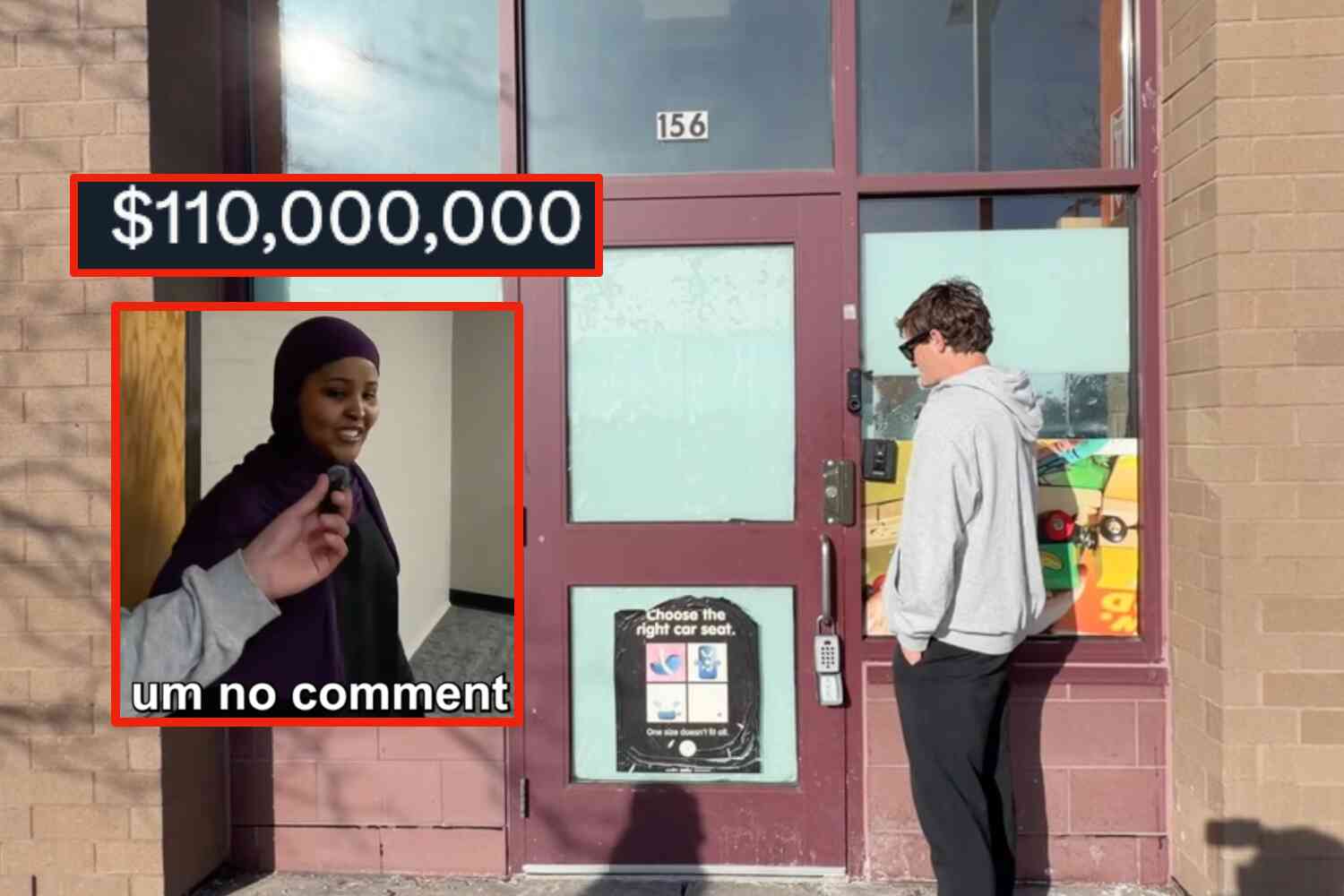Remember back in the spring when just about the entire world locked down hard? Millions thrown out of work, millions more confined to their homes, businesses destroyed, and loneliness and isolation gripped the globe?
Wasn't that great?
Slowdown of human activity was too short to reverse years of destruction, but we saw a glimpse of post-fossil fuel world.
Yes we did, didn't we? Economic devastation, once-vibrant cities hollowed out, widespread human misery.
Maybe someone should tell Joe Biden
We've had murmurings of this brave new future already as global leaders pushing "The Great Reset" see Covid as presenting an opportunity to remake the world in their own image.
I mean, remake the world for the benefit of all humankind. Or something.
Environmentalists took the opportunity to examine if the results of the crippling lockdowns we went through could help the environment in a material way.
To what extent, they asked, would the Earth system respond to the steepest slowdown in human activity since the second world war?
Environmental activists put the question more succinctly: how much would it help to save the planet?
Almost one year on from the first reported Covid case, the short answer is: not enough.
Sorry, we just did not have enough human misery to make a significant dent.
Do better, humans.
...though there is still a narrow window of opportunity for something good to come from something bad if governments use their economic stimulus packages to promote a green recovery.
I'm not convinced it's really recovery they want.
During the northern hemisphere spring, when restrictions were at their strictest, the human footprint softened to a level not seen in decades. Flights halved, road traffic in the UK fell by more than 70%. Industrial emissions in China, the world's biggest source of carbon, were down about 18% between early February and mid-March – a cut of 250m tonnes. Car use in the United States declined by 40%.
There's a giddiness to this recounting of human activity being snuffed out. "Flights halved!" "Road traffic in the UK down 70%!" "Car use in the US down by 40%!"
Isn't that fabulous?
So light was humankind's touch on the Earth that seismologists were able to detect lower vibrations from "cultural noise" than before the pandemic.
Your life? Your work? Your art, your family, your celebrations?
"Cultural noise."
There are local ordinances in place governing regular noise. Maybe we need a global one to limit the amount of bothersome cultural noise!
Your cultural noise, not theirs.
As we already know, the lockdowns were not enough to save the earth.
The respite was too short to reverse decades of destruction, but it did provide a glimpse of what the world might feel like without fossil fuels and with more space for nature.
And less for you.
Wildlife did not have time to reclaim lost territory but it had scope for exploration. Alongside apocalyptic images of deserted roads, the internet briefly buzzed with heartwarming clips of sheep in a deserted playground in Monmouthshire, Wales, coyotes on the Golden Gate Bridge in San Francisco, wild boar snuffling through the streets of Barcelona, and deer grazing not far from the White House in Washington DC.
I think we can all agree that there are few things more heartwarming than seeing playgrounds devoid of children and overrun by livestock.
And predators on the Golden Gate Bridge?
Our ancestors would be so proud.
We kind of had it coming, though.
"The emergence of the pandemic is not an accident, as there have been repeated warnings for years that we were exerting too much pressure on the natural world by our destructive practices. Habitat loss, intensive agriculture and the over-exploitation of wildlife are key drivers of the emergence of novel infectious diseases like Covid," said Paul De Ornellas, chief wildlife adviser at WWF-UK.
But for Paul De Ornellas, I might never have made the connection between habitat loss and sloppy safety protocols at a Chinese bio-weapons lab. But yes, now that you mention it, you can pretty much draw a straight line between the two.
Beyond monetary considerations, what will it cost us to truly use the Covid pandemic example to save the planet?
Just our freedom.
According to German Social Democratic MP, Karl Lauterbach,
"We need measures to deal with climate change that are similar to the restrictions on personal freedom [imposed] to combat the pandemic."
He adds cryptically, in a manner suggesting he thought this very clever:
"...there will never be a vaccine against CO2."
Probably a good thing on balance given CO2 is necessary for the existence of all life on earth and without which the planet would be a cold barren rock.
Mariana Mazzucato, a University College London economics professor who is a member of the U.N. Committee on Development Policy believes that,
"We must overhaul our economic structures and do capitalism differently."
How, differently? Let's just say she waxes poetically about the "dynamic state capabilities" of communist Vietnam.
The thing socialists and other authoritarians who seek to impose their will on others seem to miss is that it is the very countries that adopt such approaches to governance, and the widespread impoverishment that almost always follows, that are the greatest threats to the environment.
In Brazil, traditional guardians of the Amazon have been weakened. The Xavante and Yanomami indigenous groups have been strongly impacted by the disease, and the lockdown has kept forest rangers at home. Meanwhile, land grabbers, fire-starters and illegal miners were busier than ever. Deforestation in Brazil hit a 12-year high.
In the global south, the picture was more mixed. Rhino poaching declined in Tanzania due to disruption of supply chains and restrictions on cross-border movements, but bushmeat hunting, illegal firewood collection and incursions into protected areas increased in India, Nepal and Kenya because local communities lost tourist income and sought other ways to care for their families.
Prosperous, free people do not engage in deforestation or bushmeat hunting. Desperate, poor people do that, and anything else they have to to "care for their families."
Capitalism, private property, the rule of law, and the entrepreneurial spirit are what will continue to lead to a more prosperous populace, and a cleaner, more habitable planet.
Authoritarianism and socialism will not.
Even our friends at the World Economic Forum know that, or should.
What we need is more capitalism and less government if we want to prosper, reduce income inequality, and improve our environment.









